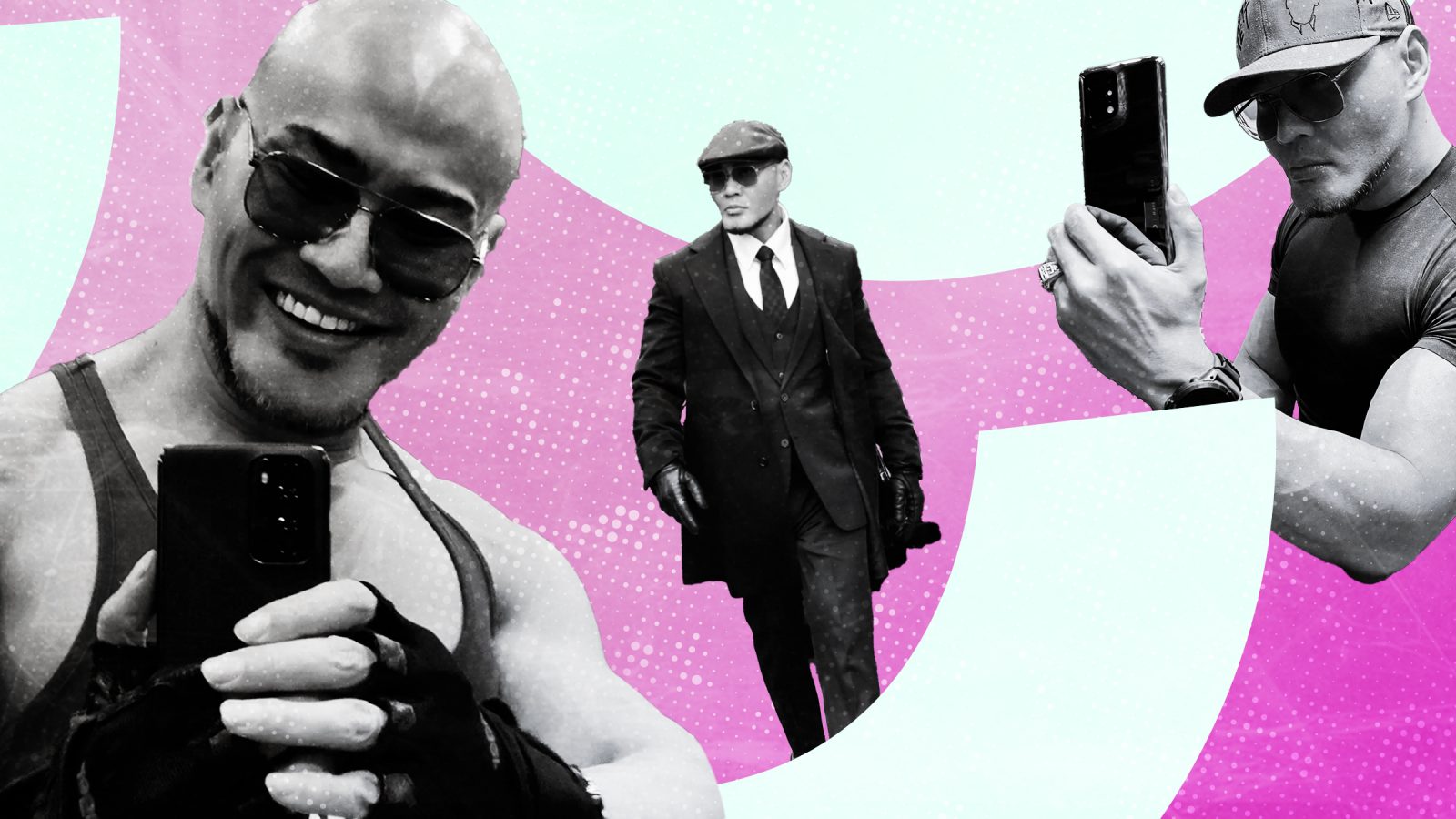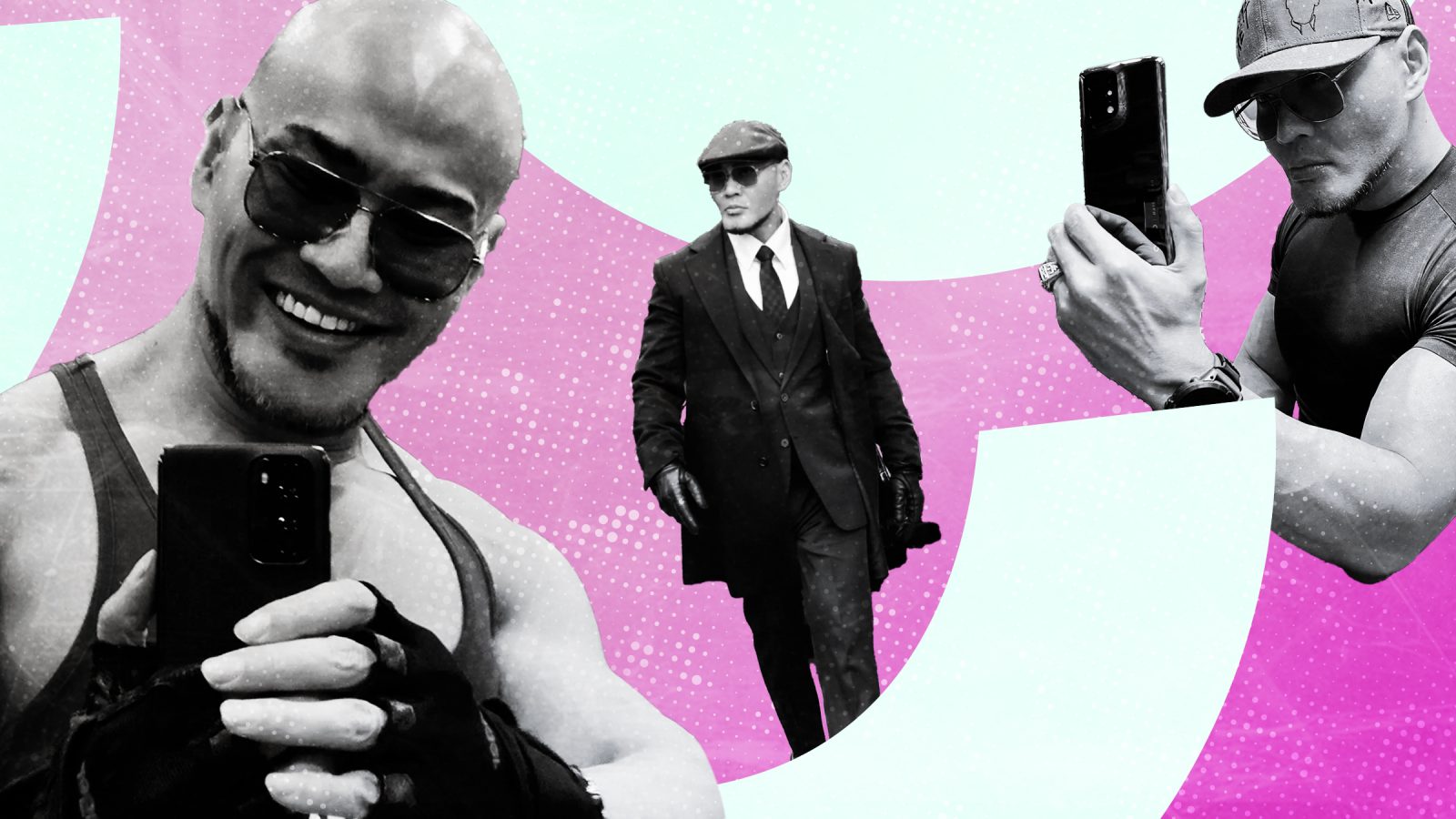
“If anyone compared me to Joe Rogan, I’d be flattered,” Deddy Corbuzier, one of Indonesia’s biggest YouTubers, told Rest of World with a smile. Corbuzier was in the studio, wearing his signature tight black T-shirt — Dwayne “The Rock” Johnson-style — and tinted glasses, slowly smoking an e-cigarette, as he often does on his show. I sat on the chair where his guests usually sit — only this time, I was the one asking questions.
On June 23, singer Widy Soediro Nichlany had sat in the same chair, revealing a traumatic experience: She’d been kidnapped and nearly raped by unknown men while walking home. Nichlany was accompanied on the show by actress Cinta Laura, known for campaigning to raise awareness about sexual violence. Though Corbuzier was attempting to highlight the issue, it was equally clear that he lacked the expertise and sensitivity to bring it home; some of his more intrusive questions prompted Nichlany to break into tears, and Laura begged to stop filming for five minutes. When Laura told Corbuzier he “liked to make people feel pressured,” he brushed it off. “I’m just asking,” he said.
That’s Corbuzier’s brand of entertainment. Deddy Corbuzier, born Deodatus Andreas Deddy Cahyadi Sunjoyo, is a defining force in Indonesia’s influencer industrial complex. His YouTube show, which releases new episodes every couple of days and enjoys a massive audience, is leveraged not just by brands for advertising, but by politicians who need to reach the masses; there are times when they’ve dropped major policy statements during an interview, such as when Finance Minister Sri Mulyani defended Indonesia’s foreign debt, or Communication and Information Technology (Kominfo) Minister Johnny Plate revealed the government’s blocking of over 500,000 online gambling platforms. A former magician — though he prefers the term “mentalist” — with a nearly 25-year-long career in entertainment, he continues to transfix millions of listeners every week.
In an interview with Rest of World, Corbuzier’s contradictions were on full display, and so was his charisma. Corbuzier likes to play devil’s advocate, often claiming that he’s presenting “the other side” of a topic, but often falls short. As in the episode with Nichlany, it’s less the debate that propels him, more a sense for drama and a nose for business.
Corbuzier’s history is full of reinvention. As a “mentalist” in a metallic black suit and dramatic goth-like makeup, he won the prestigious Merlin Award — presented to outstanding magicians by the International Magicians Society — two years running. With his iconic metal spoon-bending trick, he was a favorite prime-time performer, a fame he then used to launch a career as a media personality. After hosting a wildly popular talk show for a decade, he left television in 2020 and pivoted to YouTube and podcasting. There, his views became sharper, less family-friendly, more divisive. His following multiplied.
At its best, Corbuzier’s current YouTube show, “Close the Door,” shows his masterful skill in presenting conflict as entertainment, and weaving a sense of exclusivity about the encounter for his audience. He plays various roles: the anti-feminist podcaster who exposes sexual abuse cases; an entertainer connected to powerful politicians; a calculated businessman whose comments fuel juicy, viral conversation and clickbait. He’s amassed around 20 million subscribers on YouTube, where his channel is supported by a well-oiled, 40-person-strong production machine that uploads episodes of up to an hour, every one or two days.
Corbuzier is one of the richest YouTubers in Indonesia, according to estimates from Social Blade, bringing in around $350,000 monthly. Earlier this year, local media placed Corbuzier in the number one spot.
“[Corbuzier’s show] is beautiful content,” said Sutanto Hartono, the CEO of mainstream TV network SCTV, to Rest of World. Because the rise of digital platforms is offering alternatives to broadcast content, some creators, like Corbuzier, are stepping out of television to produce their own shows, he added.
The format of “Close The Door” is very simple. Corbuzier and his interviewees sit facing each other on opposite ends of a large black table. Corbuzier raises subjects at random, which can be something that interests him at any given moment.
He has had Defense Minister Prabowo Subianto on to talk about cats; pop diva and ex-girlfriend Agnez Mo to reminisce about their past relationship; the Coordinating Minister for Political, Legal, and Security Affairs Mohammad Mahfud Mahmodin to mull over a scandal involving a high-ranking police officer; a psychiatrist; an ex-Satan worshipper; and many more.
Corbuzier believes that people agree to open up and talk to him because he is a good listener. “I think I’m being genuine, I don’t lie about myself,” he told Rest of World. He said his fans tune in, episode after episode, because he speaks for “those who want to speak up, but are afraid of being judged.”
In a socially divided Indonesia, Corbuzier isn’t particularly aligned with any one side of politics, at least for now. His listeners can feel the pulse of the country’s current affairs, some of them told Rest of World, while media has pointed out that it’s Corbuzier’s non-challenging questions that draw politicians from across the spectrum to his show. Intentional or not, it aligns with his ability to attract as wide an audience as possible, and hold forth under the banner of “giving everybody a chance to speak.”
Some would disagree. In May, Corbuzier drew backlash after he invited a gay couple on the show to talk about their life and homosexuality. But, following an outcry from members of the public, he took the video down and even apologized for posting it in the first place. But while the country’s gender and sexual minority groups were left dealing with heightened hostility, Corbuzier’s ratings recovered in no time.
Corbuzier is in the business of emotions, and demand for that is fuelled by any controversy his show creates. “People say my podcast’s titles are provocative, clickbaits. [The movie] Batman v Superman was a clickbait, since the fighting scene was only in the last 10 minutes,” he said. “It’s a poster, you need to make a poster [for the content].”
The entertainment business is also increasingly online. In 2018, he told Rest of World, he saw a trend where the highest-income Indonesians — a large segment of his TV audience — had begun to consume more digital content, driven by the availability of smartphones and streaming services. TV networks then gradually had to adjust their programs to cater to their changing audience.
“I’m not saying they are bad. [But] I don’t want to fall from the chair,” Corbuzier said, referring to the slapstick comedy increasingly incorporated by TV producers in an attempt to capture the audience’s attention.
“Controversy is okay, [being] sensational is okay, as long as you believe in it.”
Despite only beginning “Close the Door” in 2019, he knows how to play to audiences on the internet. There are good content creators, he said, who stubbornly don’t want to learn about things like algorithms and audience behavior. He’d like to go global, but there are quirks in the way: on YouTube, channels with Indonesian IP addresses would normally not be promoted overseas, he believes. And, on the other hand, English-language content doesn’t usually do well in Indonesia. “Meanwhile, [on] TikTok, they scroll like roulette,” he said.
Brands hunting for eyeballs in the digital advertising ecosystem are unbothered by the ethics of Corbuzier’s social media methods. Digital marketing firm Digital Mediatama Maxima, together with logistics company SiCepat Ekspres Indonesia, announced in January this year that they’d invested an unspecified amount in Corbuzier’s production company, Dektos Digital Cobuzier.
Each investor took a 12.5% stake, Digital Mediatama’s president commissioner, Suryandy Jahja, told Rest of World. But given Corbuzier’s controversial persona as a content creator, does it pose any business risk? Rest of World asked.
“For us, it is a professional decision … aiming to create value through advertisement, so it is a pure commercial decision,” Jahja said. “So far, we think we made the right decision.”
Corbuzier seemingly entertains dreams of his own media empire. Dektos Digital has expanded by investing in other well-known YouTube channels to help them produce content. At the moment, his company is also working with an audiovisual tech company to implement XR tech — an “extended reality” technology under development that promises to create some visual effects without green screens. In effect, Corbuzier would be able to interview someone in a different country without ever leaving his studio; the tech would make it look like they are in the same room.
Being a social media influencer, Corbuzier said, is like being an athlete: “Either you’re good, or nobody remembers you.” Corbuzier acknowledged that some content can be “dangerous,” and called on others to refrain from making content that “fools the public too much.” But the way Corbuzier sees it, controversy and hype are part of the role.
“Controversy is okay, [being] sensational is okay, as long as you believe in it,” he said.







